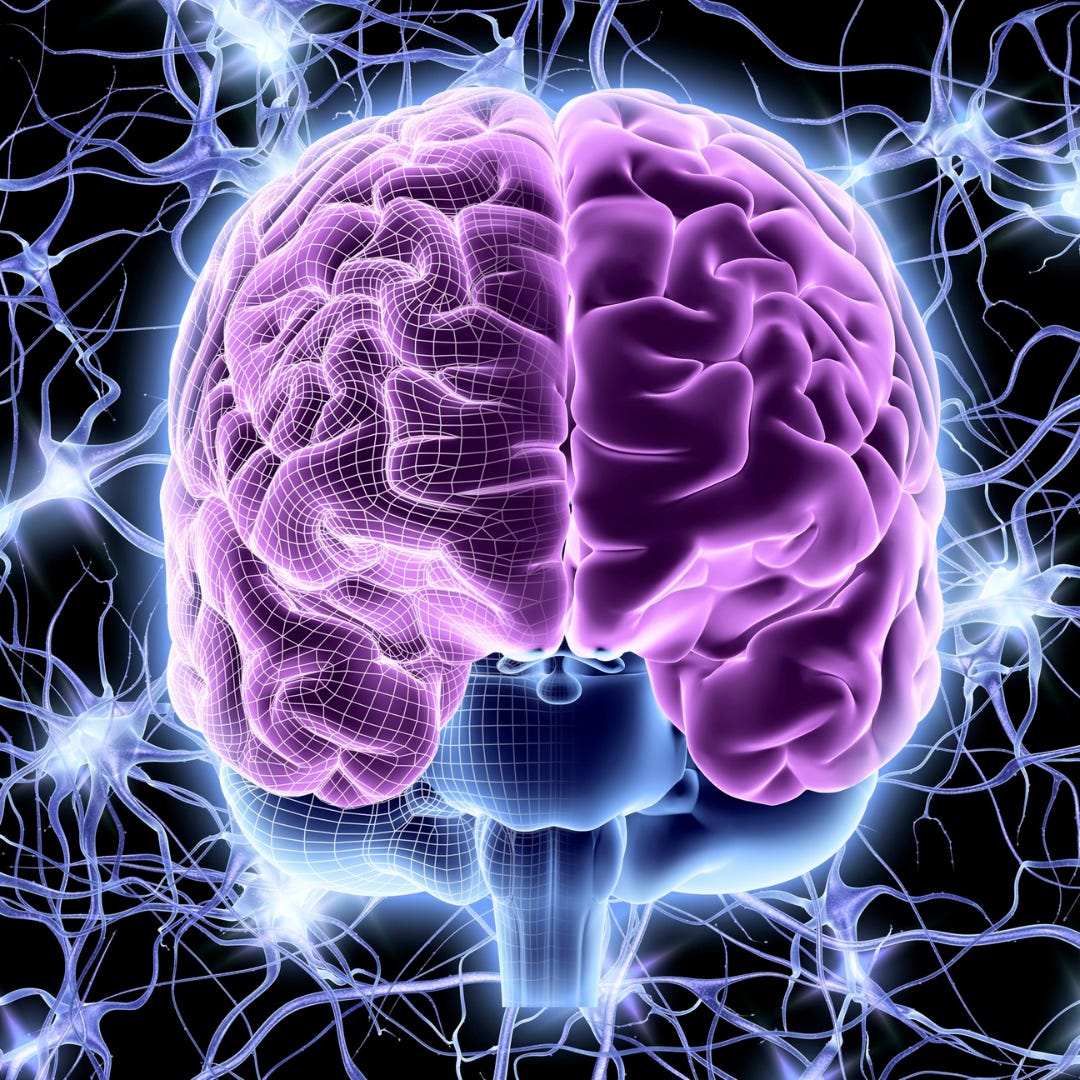"...we are never more (and sometimes less) than the co-authors of our own narratives." -Alasdair MacIntrye
Do we complain too much about complaining?
Probably.
Anyone who’s worked in a Jewish organization can recount the frustrations of dealing with criticism—an inevitable part of leadership and change. I’ve even attended (and occasionally planned!) convenings where the unspoken goal was to give people space to vent about absent individuals unable to defend themselves.
Still, I worry we’re approaching the problem the wrong way.
When we complain about complaining, we often frame it as resistance to change, as if individuals or systems are consciously choosing not to evolve. But the more I learn about heuristics, the less I believe that organizational stagnation is intentional.
To find a way forward, we need to shift our perspective. What if Jewish organizations stuck in neutral aren’t resisting change, but are led into a ditch with people who don’t realize they’ve let go of the wheel?
That possibility brings us to this week’s big idea.
Agentic State
When do you operate on autopilot?
If you’ve been following this newsletter, the short answer is “a lot.” The brain is an efficient organ that takes mental shortcuts that can, ironically, lead to inefficient decisions. However, most of the time, when we think about heuristics, we still assume that we are making some autonomous decision, whether it is fast or slow. But what about moments when we’re on autopilot, not because of mental shortcuts, but because we’ve yielded our autonomy to someone else?
Meet this week’s big idea: agentic state.
The APA Dictionary of Psychology defines agentic state as “a psychological condition that occurs when individuals, as subordinates to a higher authority in an organized status hierarchy, feel compelled to obey the orders issued by that authority.”1 Like the words "agent" or "agency," agentic refers to one’s capacity to act with autonomy.2 While the term agentic often surfaces in discussions of artificial intelligence and machine learning,3 the phrase “agentic state” has a longer lineage, dating back to the work of psychologist Stanley Milgram.4
Many are passingly familiar with Milgram’s famous studies on obedience, specifically his experiments where “teachers” administered electric shocks to “students.”5 In Obedience to Authority: An Experimental View, Milgram outlines his theoretical framework for the evolution of obedience to authority. Milgram argues that obedience occurs when “a person comes to view himself as the instrument for carrying out another person’s wishes, and he therefore no longer regards himself as responsible for his actions, or as 'the efficient cause of his own actions,’” what Milgram calls an “agentic state.”6
For many, the very idea of losing that autonomy is an affront to what it means to be human. Yet in the agentic state, a person begins to see themselves as “the instrument for carrying out another person’s wishes,” making choices they would likely never make on their own. Once this mental shift occurs, Milgram explains, the person no longer acts from personal motivation or even from concern about how they’ll be perceived. In the agentic state, behavior “no longer stems from motives of his own, [and]...has no consequences for self-conception.”7
Milgram’s work emerged in the shadow of the Holocaust, making it particularly relevant to understanding how totalitarian regimes function—and how ordinary individuals come to carry out extraordinary evil under the banner of obedience to authority. But if that’s true in extreme settings, it’s no stretch to believe we’re also susceptible to more benign but still corrosive patterns—like deferring to authority figures, systems, or traditions that slowly drain vitality from our institutions.
Sometimes, organizations stall because too much power is consolidated in a single leader. At other times, they become trapped by a shared assumption that “this is just the way we do things”—a belief reinforced both internally and externally, often without evidence. And sometimes, people are so bogged down in day-to-day drama that they forget the power they still hold. In each of these cases, autonomy is surrendered, not necessarily through malice, but in ways that weaken the organization every day, as long as they go unchallenged and unnoticed. We think we are giving it our all when, in reality, we are just operating on autopilot.
This week’s book recommendation explores the profound impact of this obedience—and why it may be more prevalent than we care to acknowledge.
The Ideological Brain
If you’re anything like me, reading about the agentic state immediately brings to mind all those who “mindlessly” march in lockstep with whatever ideology they’ve decided to worship this week. Thank goodness we’re far too enlightened to ever fall for that kind of thing. Ideological capture? That’s strictly a problem for the uninformed masses who just don’t get it.
Except… maybe, just maybe, we’re not quite as immune as we like to think.
To explore how and why our brain can become captive to ideologies, consider reading The Ideological Brain by Leor Zmigrod, a political neuroscientist working in an emerging field we’re likely to hear much more about in the coming years.
When we encounter someone who seems overtaken by an ideology, we tend to assume they’re thinking incoherently or irrationally. But as Zmigrod points out, order is at the heart of ideological thinking’s appeal: “Nowhere else is life so neatly ordered as from the inside of an ideological doctrine.”8 In fact, ideologies are “tantalizing and…dangerous” not because of “irrationality,” but because they satisfy “the desire for a perfect and foolproof logic.”9
From a neuroscience perspective, this makes perfect sense.
Zmigrod writes that the human brain is a “predictive organ”10 that “picks up on patterns easily and quickly, and intuitively extrapolates these impressions to the next event.”11 A well-structured ideology offers exactly what the brain craves: stability, coherence, and cognitive efficiency. As we know from our study of heuristics, the brain strives for “speed as well as accuracy,” because “it is tiring to discern nuance and endless possibilities at every crossroad.”12 Ideological thinking doesn’t just persuade on the merits of its content; it resonates with how our minds are built.
Returning to Jewish organizational life, it’s easy to see the allure of routines and strategies that, from the outside, might appear mindless or soulless. Outsiders may interpret this routinization as evidence of decay or dysfunction. But any successful change initiative must begin by acknowledging that these very routines bring real comfort to those within the system. As Zmigrod writes:
“Determinism hums at the core of ideologies. Within determinist frameworks, free will is deemed a naive illusion or, at least, a dangerous attitude. Each individual’s future is primarily controlled by the grand narrative of its past. Choosing a future is futile because it has already been chosen for you. The only permissible kind of agency is the agency to follow the ideology’s prescriptions and enact its vision of paradise. Trying to defy the ideology is to tempt the gods’ wrath—to invite a sinister and inevitable catastrophe. The story of the ideological brain is not one of inevitability. It is a story of potentialities that get expressed and suppressed. We all lie on a spectrum of suggestibility. This spectrum reflects the interaction of all the traits that make people susceptible to ideological thinking: their biological or cognitive dispositions, their personalities and social experiences, their traumas and perceived resources, abundances, realities, and absences.”13
As we discussed in Immunity to Change,14 people often perceive the safest path as staying the course rather than confronting the unknown. What Zmigrod helps us understand is that this tendency isn’t a flaw—it’s part of how our minds naturally function.
I didn’t love every part of The Ideological Brain, and I was mildly offended by the chapter on religion (see the footnote for an explanation).15 Still, the book offers an essential insight: until change agents stop casting organizational resistance as stubbornness or malice, and start recognizing that people are acting logically, according to how their brains are wired, we won’t develop the compassion needed to help them grow. And that respect might be the first step toward moving our organizations from mindless repetition to mindful change.
The Science of Ideology
1894
The year that Captain Alfred Dreyfus was wrongly convicted of treason against the French military. The French National Assembly is currently considering posthumously promoting Dreyfus to the rank of brigadier general.
What I Read This Week
Have We Reached Peak Substack?: Goodness, I hope not! However, this feature from the Columbia Journalism Review delves into what the growth of newsletters reveals about the state of journalism and long-form writing in the social media era.
The Workload Fairy Tale: I can’t remember the last time I shared an article from Cal Newport. Can you find it in your heart to forgive me?
What is Google For Anymore?: No company is immune to disruptive innovation, including Google. The growth of ChatGPT and other forms of artificial intelligence is raising questions about whether or not the king of all search may finally meet its match.
Swahili Wikileaks: Remember Wikileaks? I’m still not entirely sure what I think about that entire episode. However, it turns out that a related incident occurred in East Africa, and here is an interesting analysis of what is different and the same as the last time a massive data dump took place.
What is Reactance and How to Avoid It?: Katy Milkman taught me something new! This happens quite often, and I can expect to revisit this concept as I learn more.16
Ibid., 147.
Ibid., 65-66.
Ibid., 55.
Ibid., 57-58.
Ibid., 58.
Ibid., 199-200.
Not surprisingly, Zmigrod dedicates a considerable amount of time to exploring the relationship between religious ideology and its impact on the brain from a neuroscience perspective.
Needless to say, Zmigrod points out that the certainty promoted in certain religious ideologies demonstrates the harm of high cognitive rigidity. So far, so good.
But Zmigrod goes further and claims that religious ideology is uniquely harmful as an ideology because of its theism. She writes (emphasis mine):
“[For many religious believers],…religiosity evokes an openness toward a more expansive world…Religious revelation in this sense speaks toward an open heart, an openness to a spiritual world with invisible dimensions and meanings. But I believe the language of “openness” misleads. It muddies the difference between living in a way that is amorphous and living in a way that is rigidly defined. By using “openness” to describe conversions into an ideology, we are blurring the lines between education—which opens the world—and indoctrination—which closes it. In religion, we find the ultimate fulfillment of the brain’s predictive and communicative patterns. Someone is always present to listen, to story-tell, to explain. Mind and meaning are attributed to every inexplicable event. Religion postulates intelligent powers, supernatural spirits, and mystical events in a way that uniquely speaks to our brain’s tendency to see agency in random events and to imagine that chance encounters are underpinned by intentions” (154-155).
This is the kind of passage where I think Zmigrod engages in a little too much hyperbole for my liking.
Why is religion “the ultimate fulfillment of the brain’s predictive and communicative patterns” in contrast to any number of ideologies responsible for untold human destruction, many of which were largely areligious (e.g. Nazism, Stalinism, etc.)? What about techno-utopianism, which is largely secular and has been connected to increases in violence, depression, etc.?
While Zmigrod is right that religion can lead to harmful behaviors like any ideology, the idea that it’s somehow worse is a claim that requires far more evidence than she provides to make credible.
Returning to our friend Greg Epstein, religion is not a cause or solution, but a medium by which people identify causes and solutions. He writes:
“Ancient religions were not exactly the cause of—or the solution to—human suffering. They were the medium through which we processed our struggle to be human on an unfamiliar and uncaring planet. Likewise, today, tech itself is neither the perfect savior nor the absolute villain of our daily experience. It is the medium through which we process our humanity, which makes our tech rituals like religious rites of the past” (Tech Agnostic, 159-160).
I know nothing about Zmigrod’s religious background, and I thought the book was outstanding. But I’m OK being overly sensitive as a rabbi and saying that there’s no need to put religion on a higher or lower pedestal to make her point. My takeaway from her book is that cognitive rigidity and any all-encompassing ideology can be a recipe for disaster, whether that ideology is religious or not.
Ok, end of sermon.
P.S.- I love that such an original thinker has enough of a sense of humor to title her newsletter “Milkman Delivers.”








